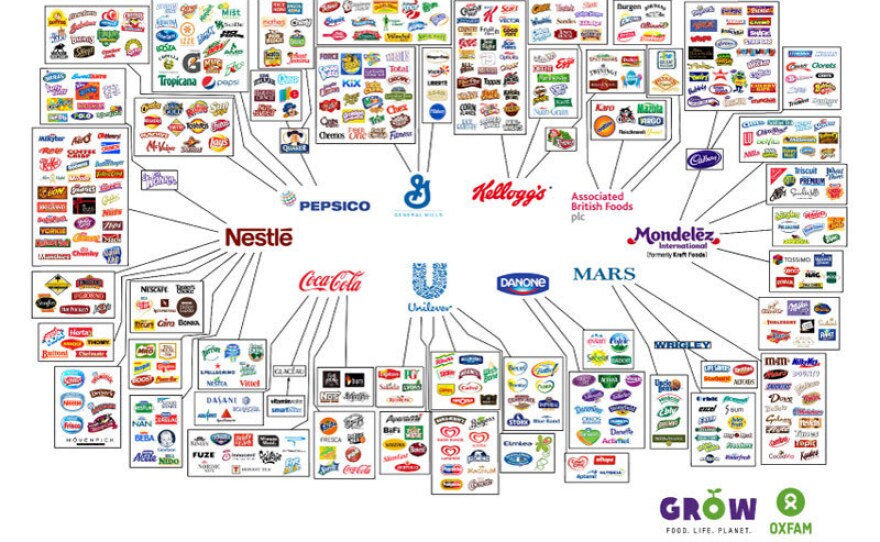
It's not always easy to connect the dots between the food we consume and the people who grow it, or the impact of growing and processing that food on the health of our planet.
But a campaign called Behind the Brands, led by Oxfam International, an advocacy organization dedicated to fighting poverty, is trying to make the inner workings of the 10 biggest food companies in the world more visible.
They include General Mills, Associated British Foods, Danone, Mars, Coca-Cola, Mondelez, Unilever, PepsiCo, Nestle and Kellogg. Those companies, as you can see from the infographic, control much of what we consume.
Oxfam's goal is to nudge them by scoring them on a scale of 1 to 10 on a whole host of fronts, from worker rights to climate change.
We sat down to talk with Chris Jochnick, one of the architects of this campaign and Oxfam America's director of private sector development. We touched on how social media is giving activists more power, why big food companies respond to pressure, and whether corporate executives are his friends or his enemies.
We also wanted to know: Will the promises that these companies make really translate into concrete changes on, say, cocoa farms in West Africa?
If you listen to our conversation above, you'll hear Jochnick explain some of the tactics he and others have used to influence corporate leaders.
Those tactics include speaking up as shareholders at annual meetings or earnings calls, and staging public events, such as the one featured in this YouTube video of activists in Time Square drawing attention to the plight of female cocoa farmers in Africa.
These efforts led to agreements with three large chocolate companies — Mars, Mondelez and Nestle — who have committed to doing more to help the female cocoa farmers in their supply chains escape poverty.
Credit for photo on the SoundCloud audio: iStockphoto
Copyright 2014 NPR. To see more, visit http://www.npr.org/.





